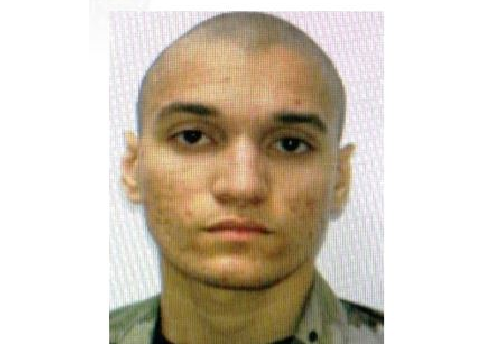Community
14 commanders among those fired, suspended at Fort Hood after deaths of 8 soldiers, including Massachusetts native

WASHINGTON – The Secretary of the Army Tuesday directed the relief or suspension of 14 Fort Hood commanders and other leaders down to the squad level based on the findings of an independent review of the command’s climate and culture.
The following leaders are relieved: Maj. Gen. Scott L. Efflandt, deputy commanding general (Support), III Corps; and Col. Ralph Overland and Command Sgt. Maj. Bradley Knapp, the 3rd Cavalry Regiment commander and command sergeant major.
The secretary also directed the suspension of Maj. Gen. Jeffrey Broadwater and Command Sgt. Maj. Thomas C. Kenny, 1st Cavalry Division commanding general and command sergeant major, pending the outcome of a new Army Regulation (AR) 15-6 investigation of 1st Cavalry Division’s command climate and Sexual Harassment/Assault Response and Prevention program.
The Army is also opening a separate AR 15-6 investigation into the resourcing, policies and procedures of the 6th Military Police Group (Criminal Investigation Command).
Also, the Secretary of the Army announced a new Army policy on missing Soldiers and formed the People First Task Force to address the recommendations of the Fort Hood Independent Review Committee.
Along with the civilian members of the FHIRC, Secretary McCarthy also unveiled the results of a three-month examination of the command climate and culture at Fort Hood and the surrounding military community and its impact on the safety, welfare and readiness of Soldiers.
“The challenges at Fort Hood forced us to take a critical look at our systems, our policies, and ourselves. This is not just about metrics, but about possessing the ability to show compassion for our teammates and to look out for the best interest of our Soldiers. This report, without a doubt, will cause the Army to change our culture,” Secretary of the Army Ryan D. McCarthy said. “We thank the committee members for their outstanding efforts to provide us with an honest, factbased assessment of the conditions at Fort Hood and a slate of recommended actions intended to benefit that installation and the entire Army.”
“In response to the findings of the independent review, I have signed a directive clarifying expectations and responsibilities of unit commanders and Army law enforcement authorities focused on the first 48 hours after a Soldier fails to report for duty,” Secretary McCarthy said. “When one of our teammates does not report for duty, we will change their duty status to ‘absent-unknown’ and take immediate action to find them.”
This directive’s creation of an additional duty status code – “absent-unknown” (AUN) – will provide commanders with time to make the appropriate determination of an absent Soldier’s status. Commanders will utilize AUN as a transitory duty status for up to 48 hours, prompting unit and law enforcement actions to assist in locating the Soldier. Previously, Soldiers who were absent for unknown reasons were listed as “absent without leave” (AWOL).
Under the new policy, commanders must determine by a preponderance of evidence that a Soldier’s absence is voluntary to classify their duty status as AWOL. If this burden cannot be met, commanders will classify absent personnel as “missing,” and the Army will simultaneously initiate a “duty status whereabouts unknown” (DUSTWUN) casualty case. Opening a DUSTWUN casualty case provides the Soldier’s family with a liaison officer while it attempts to locate the missing Soldier.
The FHIRC, which began work in August, examined the command climate and culture at Fort Hood and the surrounding military community to determine whether they reflect the Army’s commitment to safety, respect, inclusiveness, diversity, and freedom from sexual harassment. In its report, the FHIRC found a deficient climate at Fort Hood, including ineffective implementation of the Sexual Harassment/Assault Response and Prevention (SHARP) program that resulted in a pervasive lack of confidence, fear of retaliation, and significant underreporting of cases, particularly within the enlisted ranks. Fort Hood leadership knew or should have known of the high risk of harm to female Soldiers, according to the report.
“Soldiers assaulting and harassing other Soldiers is contrary to Army values and requires a dramatic change in culture,” Chris Swecker, the committee chair, said. “The committee determined that, during the time period covered by our review, there was a permissive environment for sexual assault and sexual harassment at Fort Hood. We have recommended changes to the staffing, structure and implementation of the SHARP program at Fort Hood, and possibly beyond, to address deeply dysfunctional norms and regain Soldiers’ trust.”
The FHIRC also found that Fort Hood’s Criminal Investigation Command (CID) detachment was under-experienced and over-assigned, factors which adversely impacted investigations of sex crimes and Soldier deaths. In all, the FHIRC’s report sets forth nine findings and 70 recommendations relating to areas including SHARP; Fort Hood CID; missing Soldier protocols; and the installation’s crime prevention and public relations efforts. FHIRC members also concluded that Fort Hood and the Army as whole must do more to cultivate a culture of inclusivity and respect which values the contributions of all service members.
The FHIRC delivered its report to Army leadership on Nov. 6. The independent review arose from the questions and concerns voiced by family members, Congress, and various Hispanic advocacy groups during the investigation into the disappearance and murder of Spc. Vanessa Guillén.
In late August, FHIRC members Swecker, Jonathan Harmon, Carrie Ricci, Queta Rodriguez and Jack White conducted a two-week fact-finding mission to the base, meeting with unit leaders, Soldiers, members of the Guillén family, local officials, law enforcement and community groups.
“People are our greatest strength, our most valuable asset, and our most important weapon system,” Secretary McCarthy said. “While the independent review focused on the command climate and culture at Fort Hood, the findings contained in the committee’s report impact the entire Army and more than 1.2 million Soldiers. In response, we’ve created the People First Task Force to study the committee’s recommendations and map out a plan to tackle them.”
The People First Task Force will analyze the findings and recommendations in the FHIRC report, develop a plan of action to address issues identified by the committee, and reevaluate current policy and programs.
The Task Force will present its recommendations to Army leadership as quickly as possible for Army senior leaders’ review and implementation.
Fort Hood has garnered attention recently after at least 8 soldiers stationed there have died or been found dead since March.
23-year-old Elder Fernandes of Brockton was found hanging from a tree in August after going missing. Fernandes was part of an investigation where he was reportedly a victim of “abusive sexual contact” before his death. Family members of Fernandes feel the punishments handed down Tuesday needed to be more severe.






You must be logged in to post a comment Login